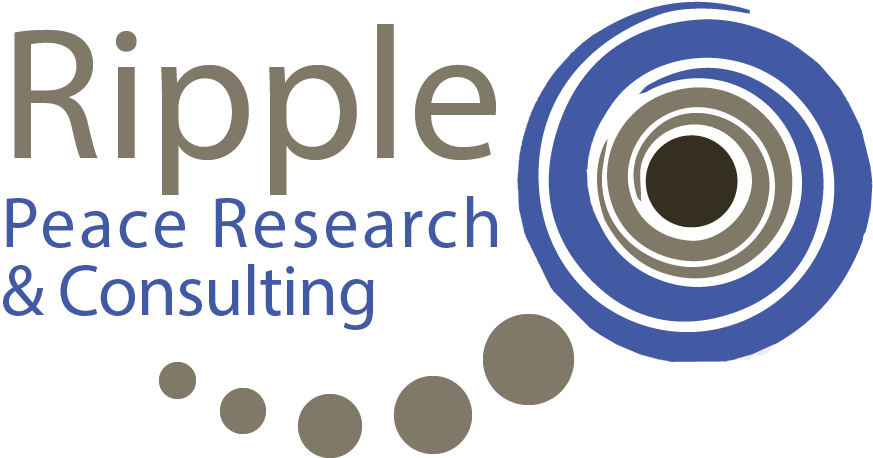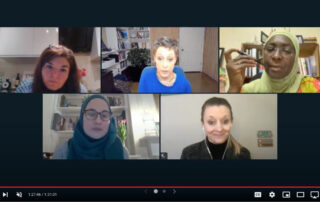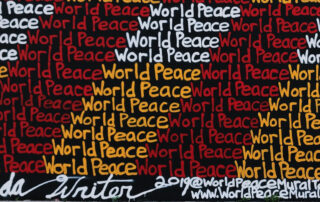Bridgebuilding Effectiveness – with Cohesion Strategy
Ripple Peace Research & Consulting is thrilled to collaborate with Cohesion Strategy to share our recent blog series on Bridgebuilding Effectiveness. In late 2024, democracy strategist Allison K. Ralph was grappling with questions about the real-world impact of bridgebuilding programs within the U.S. pro-democracy space. She reached out to program evaluator Michelle Garred to propose a collaborative process of inquiry and writing. Over the past few months, we’ve worked together to synthesize our thinking on what makes bridgebuilding effective—and how it can be strengthened. Across the American landscape, there’s a growing emphasis on “light-touch bridgebuilding”—efforts that aim to ease tension across lines of [...]
Outcome Harvesting + Attitude Change: a new Guide
Ripple Peace Research & Consulting is delighted to announce a significant Outcome Harvesting + Attitude Change update! A new Guide is available for free download. Outcome Harvesting, originally developed by Ricardo Wilson-Grau, is especially well-suited for monitoring and evaluating social change initiatives in complex contexts. Unlike traditional approaches, it identifies emergent changes instead of trying to predict specific outcomes in advance. It focuses on observable behavior change because behavior is the building block of impact. At the same time, some programs also involve unseen, internal change. For example, attitudes are crucial in building relationships and solidarity across diverse communities, advancing gender equity [...]
New research: Conflict sensitivity for interfaith action
Michelle Garred, PhD, and Johonna McCants-Turner, PhD, recently teamed up to produce two exciting new resources: Far Beyond a Tool: Do No Harm as Spiritual (Trans)Formation for Interfaith Cooperation and Action. This article appears the journal Development in Practice (1 Aug. 2022). ‘Do No Harm’ Brief for Faith Leaders in Community Action. This is a quick-and-dirty summary for busy practitioners. Johonna and Michelle also spent some time with Interfaith America staff in a conflict sensitivity workshop, discussing the applications of this global approach within the USA. Key Points in a Nutshell The conflict sensitivity approach, particularly the tool called Do No Harm (DNH), shows unexpected potential as a catalyst [...]
Outcome Harvesting: Justice, power and looking backward
In this post, Michelle Garred and Matteah Spencer Reppart suggest that Outcome Harvesting has the potential to disrupt culturally Western assumptions in program evaluation through the use of retrospective logic. Outcome Harvesting (OH) is unique among evaluation approaches because it looks backward in time to identify outcomes, rather than relying on the advance prediction of detailed results. Outcome Harvesting creator Ricardo Wilson-Grau explained this as a suitable approach for evaluation in complex contexts, with which we wholeheartedly agree. We also see something more: By looking differently at time, Outcome Harvesting can help to shift power dynamics by honoring multiple ways of working, [...]
What is faith-sensitive evaluation?
Fresh from this year’s PeaceCon@10 event, session video is now available for: Faith-Sensitive Design, Monitoring & Evaluation: How Does it Work in Practice? A growing interaction between faith-inspired and secular peace practitioners has led to a new concept: ‘faith-sensitive design, monitoring and evaluation’ (DME). The core proposition of faith sensitivity is that mainstream DME approaches are not necessarily relevant, useful or respectful to faith-inspired actors, so it can be helpful to adapt and contextualize those approaches. The concept has been influential, with both secular and faith-based organizations seeking to apply it in various ways. At the same time, there are some legitimately skeptical [...]
Social justice in peace program evaluation
Michelle Garred has been reflecting over the past year on the race, ethnicity and power dynamics involved in the trend of American global peacebuilders like herself returning home and re-focusing their attention on the USA. She suggests that global peacebuilders have some useful skills to contribute in this context – but only if they recognize their disproportionately white identities, shed some unwanted baggage, and honor the leadership of colleagues of color in the work of ‘just peace’ in the USA. Centering equity in peace program evaluations is one way to help leverage this change. Here is Michelle’s recent guest blog written for [...]






